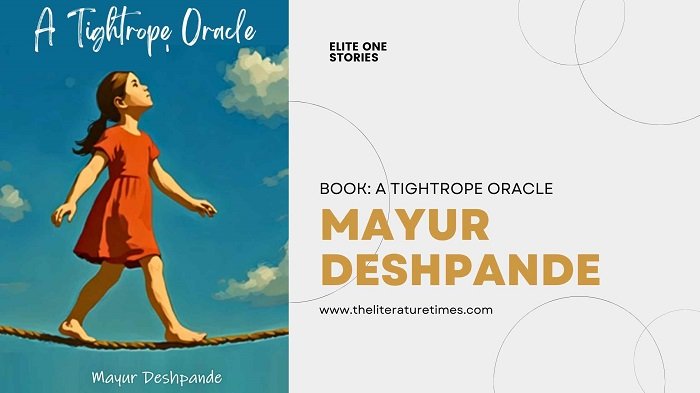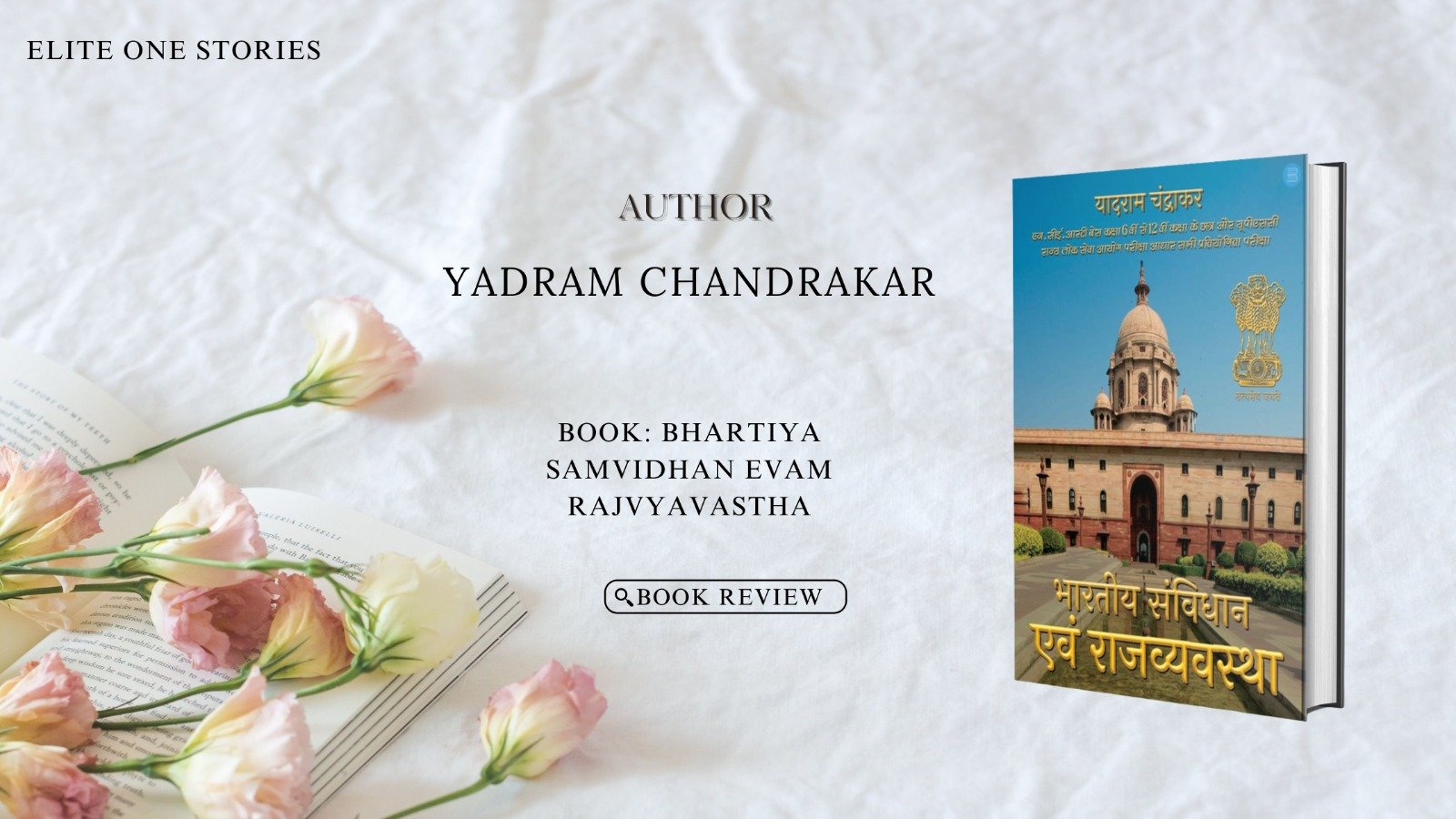A Tightrope Oracle by Mayur Deshpande is a moving, multilayered novel that seamlessly blends realism and mysticism to tell a story that is both personal and political. It follows the life of Sarsi, a young girl from a street-performing family in the marginalized Javmalsi community, who discovers a unique and mysterious ability to see glimpses of the future through reflections in car windshields. A Tightrope Oracle is not just a tale of magical foresight, but an exploration of moral dilemmas, faith, poverty, and the often invisible struggles of the urban poor. Sarsi’s journey is set against the backdrop of India’s socio-economic disparity, and Mayur Deshpande masterfully uses her story as a lens to expose a deeply segregated and indifferent society.
The power of this novel lies in its richly human protagonist. Sarsi is not a messiah. She is not flawless, and that’s exactly what makes her compelling. As a child, she earns her livelihood walking tightropes on the street while her mother beats the drum and her father collects donations. She’s grounded in tradition and bound by love and duty. Her supernatural gift doesn’t elevate her into another world; rather, it sharpens her sense of reality and thrusts her deeper into the lives of those she seeks to help. Deshpande’s writing brings Sarsi to life with subtlety and grace. She evolves from a frightened girl into a reluctant oracle, burdened with knowledge no one should possess. Her moral compass is constantly challenged—can the future truly be changed, and at what cost?
The novel thrives on its atmosphere of everyday struggle infused with the extraordinary. Early in the book, when Sarsi saves lives during a street accident by predicting it seconds before it happens, the moment feels neither forced nor overly dramatic. It is startlingly natural in tone, and that becomes the signature style of the narrative—miracles wrapped in the mundane. The brilliance of Deshpande’s storytelling lies in how he never allows the mystical to overpower the emotional. Instead of using her powers for spectacle, Sarsi uses them quietly, often secretly, and never without deep thought. She becomes a spiritual figure not because of her gift, but because of her compassion, humility, and resilience.
As the plot unfolds, the novel delves into complex moral territory. Sarsi’s decision to refuse a businessman’s offer to exploit her powers for profit is a clear rejection of greed, but it also initiates a series of tragic events that underscore the theme of consequence. Her powers may be divine, but the world remains cruel, unpredictable, and beyond full control. In one particularly heartbreaking episode, Sarsi tries to prevent a girl from committing suicide only to see her die in another accident. The message is clear: destiny is a tangled web, and even divine glimpses may not be enough to untangle it. Sarsi becomes painfully aware of her limitations, making her all the more real, more human.
What makes A Tightrope Oracle especially relevant is its unflinching look at systemic injustice. The arrest of Javmalsi men by a corrupt politician, the community’s collective despair, and the loss of faith in Sarsi are all chillingly familiar scenarios. These are people who exist on the fringes—without privilege, power, or protection. Deshpande doesn’t sugarcoat their reality. Instead, he gives them voice and agency through Sarsi, who ultimately galvanizes the women into fighting back through legal means. It’s a quiet revolution, but one that resonates deeply. In a world of quick-fix saviors and social media noise, Sarsi’s way—rooted in persistence, community, and quiet strength—feels authentic and inspiring.
The relationship between Sarsi and her father, Rameshwar, is another emotional backbone of the novel. Rameshwar believes Sarsi is sent by Lord Vishnu, but his belief is not blind—it is protective, devout, and full of hope. His support gives Sarsi the courage to grow into her role, and his death is treated not as melodrama but as a moment of inevitable transformation. Her marriage to Shamu adds another layer of tenderness, showing that love, too, can exist with grace even in hard circumstances. Shamu’s near-death experience, avoided only because of Sarsi’s vision, creates a powerful moment that binds the personal with the spiritual, reinforcing the themes of fate, love, and protection.
The narrator—an outsider and journalist—is a clever literary device. Through his eyes, readers discover not just Sarsi but their own cynicism, disillusionment, and longing for purpose. His journey from observer to believer, from corporate burnout to community advocate, adds depth and realism to the storytelling. His interactions with Sarsi, particularly in the final chapters when tragedy and ambiguity converge, highlight the cost of wisdom. The subplot involving Nathu’s death is dark and morally ambiguous, challenging the reader to question not just Sarsi’s choices but the cost of being chosen.
Mayur Deshpande’s prose is clean, heartfelt, and deeply rooted in emotion. He avoids excessive ornamentation and lets the story’s spiritual undertones breathe organically. His background as an analyst seems to inform his precision, while his emotional intelligence—shaped by his role as a father—enriches the novel with warmth and sincerity. The fact that the book was inspired by his daughter adds a meta-layer to the narrative, as Sarsi herself becomes a symbol of what it means to be gifted, vulnerable, and deeply loved.
A Tightrope Oracle is not just a novel—it is a reflection of society’s forgotten voices, a call to moral courage, and a meditation on the fragile balance between destiny and choice. Sarsi walks the literal and metaphorical tightrope throughout the novel, and her balancing act becomes ours. With its deeply human characters, spiritual depth, and social resonance, this book stands tall as a story for our times—one that deserves to be read, shared, and remembered.



